
Gaëlle Pantin-Sohier
Professeur des universités en science de gestion, IAE Angers - Université d'Angers
Spécialiste du marketing sensoriel, de l'innovation alimentaire et de la gestion des marques au sein d'IAE d'Angers, Université d'Angers.
Less ![]()
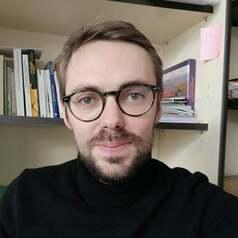
Gaëtan Mangin
ATER en sociologie, Université d'Artois, docteur en sociologie, Université de Bourgogne – UBFC
Gaëtan Mangin est docteur en sociologie de l'Université de Bourgogne. Ses travaux portent sur l'attachement à l'automobile, et plus largement sur l'expérience des mobilité à l'heure de la transition écologique.
Il est actuellement enseignant-chercheur ATER à l'Université d'Artois.
Less ![]()
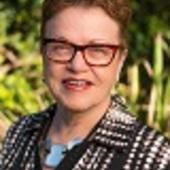
Gail Wilson
Adjunct Associate Professor, Office of the PVC (Academic Innovation), Southern Cross University
Less ![]()
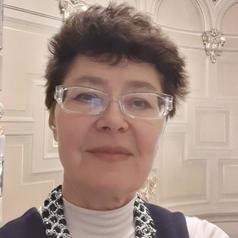
Galyna Piskorska
Honorary Senior Fellow at the Advanced Centre for Journalism, University of Melbourne,Associate Professor, Department of Advertising and Public Relations, Faculty of Journalism, Borys Grinchenko Kyiv University (Ukraine), The University of Melbourne
Galyna Piskorska, Associate Professor, Department of Advertising and Public Relations, Faculty of Journalism, Borys Grinchenko Kyiv University (Ukraine) has more than 35 years’ experience in academia, political science, journalism, and international relationships management in the field of higher education.She is Member of the National Union of Journalists of Ukraine.
In March 2022, Dr. Piskorska was forced to leave Ukraine due to the Russian invasion. Currently, she is a Honorary Senior Fellow at the Centre for Advanced Journalism (University of Melbourne). Over the past year, she has led joint online workshops with students from Ukraine and Australia. Her research provides verified information about the Russian aggression and Ukraine’s struggle for freedom and its future.
Less ![]()
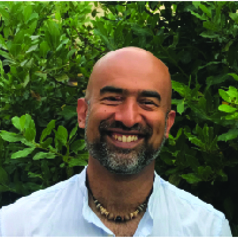
Ganesh Gowrishankar
Chercheur au Laboratoire d'Informatique, de Robotique et de Microelectronique de Montpellier, Université de Montpellier
It is very important for machines to “understand human behaviors” (recognize the motivation, emotion and cause of observed actions) and predict human behaviors, in order to interact with them. And this is not a trivial challenge because human behavior is complex and still not very well understood in neuroscience and psychology. My work integrates Neuroscience, behavioral psychology and Robotics to address this challenge. We use methods from neuroscience to develop a computational understanding of the human brain and behavior, and use this to develop intelligent and “human like” machine behavior near humans.
My name is Ganesh Gowrishankar. I am a senior researcher with the le Centre national de la recherche scientifique (CNRS) in France and I work on the science of human-machine interactions (https://www.lirmm.fr/ganesh-gowrishankar/).
Less ![]()

Ganewati Wuryandari
Professor, Badan Riset dan Inovasi Nasional (BRIN)
Dra degree, obtained from Faculty of Social and Politics, UGM
M.A degree., got from International Relations, Department of Politics, Monas University
PhD degree from Asian Studies, the University of Western Australia
Prof in International Relations, BRIN
Less ![]()
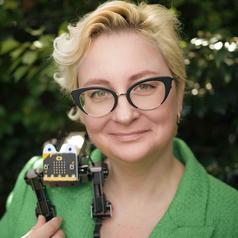
Ganna Pogrebna
Executive Director, AI and Cyber Futures Institute, Charles Sturt University
Ganna Pogrebna is a behavioral data scientist, decision theorist, educator, author, and academic writer. She currently serves as the Executive Director of the Artificial Intelligence and Cyber Futures Institute at Charles Sturt University, the Lead for Behavioural Data Science at the Alan Turing Institute (UK), and an Honorary Professor of Behavioural Business Analytics and Data Science at the University of Sydney. She is known for her work in combining data science methods with those from economics and psychology to model human behaviour under risk and uncertainty.
Less ![]()
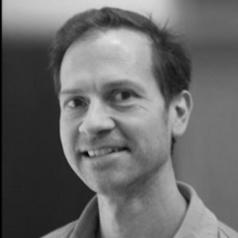
Gareth Byatt
Independent Consultant and Visiting Lecturer, UNSW Sydney
Gareth owns Risk Insight Consulting, and has previously held various full-time senior risk roles in the international engineering and construction sector. He focuses on assisting clients in various industries around the world to maximise and transform their performance with corporate, operational and project risk management and the application of practical organisational resilience. Gareth is closely involved with Risk and Engineering Institutes in Australia and the UK, and is a visiting lecturer at the University of New South Wales (UNSW). He regularly writes about the management of risk for associations and publications and speaks at international conferences on risk and project management.
Less ![]()
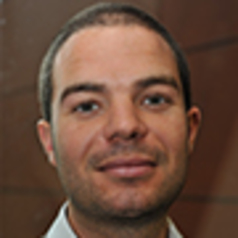
Gareth Downing
Senior Lecturer in Economics, Strategy, Marketing and Economics, University of Huddersfield
Gareth Downing joined the University as a lecturer in Economics in 2013. Before joining the University of Huddersfield, Gareth worked briefly with the Scottish Government within the newly formed fiscal responsibility team looking into issues related to possible future independence. Before deciding to take a career in economics Gareth spent several years working in the field of mental health on an acute psychiatric ward which he found extremely interesting and rewarding.
Gareth’s main research interests are in the ares of Governance and Growth. In particular, the focus of his PhD is on the relationship between Decentralisation, Corruption and Economic Development. Gareth is also interersted in monetary economics and the Post Keynesian perspective.
Less ![]()
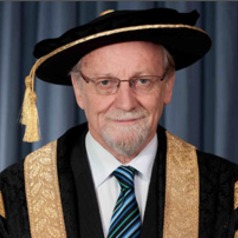
Gareth Evans
The Hon Gareth Evans AO QC took up his appointment as Chancellor of The Australian National University on 1 January 2010.
Professor Evans is an Honorary Professorial Fellow at the University of Melbourne, and Co-Chair of the International Commission on Nuclear Non-Proliferation and Disarmament. He is President Emeritus of the Brussels-based International Crisis Group, the independent global non-governmental organisation working to prevent and resolve deadly conflict worldwide, of which he was President and Chief Executive Officer from January 2000 to June 2009.
Gareth Evans has maintained strong academic and scholarly connections throughout his career, lecturing at many universities around the world. In May 2004, he was elected as an Honorary Fellow of Magdalen College, Oxford, and is a member of the International Advisory Board of UN Studies at Yale; the Advisory Council of the Institute for International Studies at Stanford; and the Editorial Advisory Board of the Cambridge Review of International Affairs. In July 2009, he was appointed by the University of Melbourne Honorary Professorial Fellow in the School of Social and Political Sciences.
Among other current positions, Gareth Evans is a Fellow of the Foreign Policy Association; a member of the International Council of the Asia Society; a member of the International Advisory Board of the Pew Global Attitudes Survey; and a member of the International Advisory Board of the Asia-Pacific College of Diplomacy, Australian National University. In June 2008, he was made an Inaugural Fellow of the Australian Institute of International Affairs in recognition of his outstanding contribution to Australian international relations.
Less ![]()
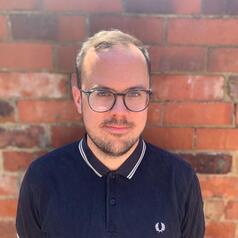
Gareth Fearn
Leverhulme Early Career Fellow, University of Manchester
I am a writer and researcher based in Manchester, currently working on a project on energy privatisation as a Leverhulme Early Career Fellow (Uni of Manchester). Prior to this I researched environmental planning at Newcastle and UCL. My academic research focuses on the ideology and state practices of the energy transition. I have also written on energy and UK politics for Tribune, LRB, Labourlist and New Socialist.
Less ![]()
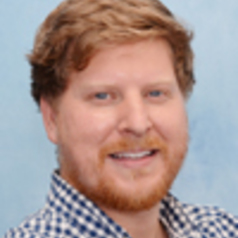
Gareth J. Fraser
Lecturer in Evolutionary Developmental Biology, University of Sheffield
Our research comprises three major areas of interest: (i) biodiversity and morphological evolution of fishes; (ii) comparative dental development and regeneration; and (iii) evolutionary developmental biology.
We study the development of dental diversity across a range of vertebrates. Our lab questions how varieties of teeth are patterned and modified across species, how they form, and how they are replaced for continued production, specifically in fishes. Fishes account for more than half of all extant vertebrates and in addition have an immense diversity of dental form. The models that we study vary vastly from initial dental patterning and tooth number, to the capacity for dental regeneration with a diverse array of tooth replacement modes. This comparative context provides a framework in which to understand the complexities of dental diversity at the genetic level.
Our broad research focus is the genetic basis of developmental mechanisms that regulate vertebrate craniofacial patterning and evolution. By coupling evolutionary and developmental genetic disciplines with more translational biosciences we aim to break down the complexities of morphological development, diversity and regeneration of the craniofacial skeleton, and in particular the dentition.
Less ![]()
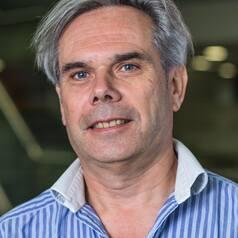
Gareth Jones
Professor of Biological Sciences, University of Bristol
I graduated from the University of London with a degree in Ecology, and then did my PhD on the behavioural ecology of birds at Stirling. I came to Bristol in 1985 to work on aerodynamics of bat flight, and was then awarded a Royal Society University Research Fellowship to combine my interests in ecology, behaviour and bat biology. I have worked on bats on 5 continents, with recent studies based in China, Madagascar, Malaysia, Malawi and Colombia. In 2010 I was awarded the Gerrit S. Miller Award at the University of Toronto in recognition of "outstanding service and contribution to the field of chiropteran biology." My recent research has focussed on conservation biology, especially global change biology and molecular ecology. I've supervised 60 PhD students and 25 Masters students.
Although my research has focussed on bats, it has diversified to cover birds, marsupials, crayfish, primates, insect vectors and crocodiles, and has spanned disciplines ranging from underwater bioacoustics to molecular ecology. I'm happiest working in the field, though lab studies are important for my research too.
Less ![]()
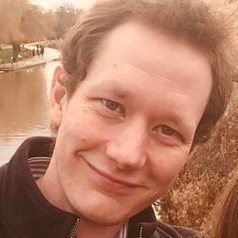
Gareth Thomas
Research Associate in the School of Social Sciences, Cardiff University
I'm a researcher in the School of Social Sciences at Cardiff University. My work focuses on the lived experience and justice implications of low carbon technologies and infrastructure change.
I talk to people about energy. Then write about it.
My research background is in policy, science and technology studies specialising in the social acceptability of socio-technical transitions, particularly in the field of energy. My most recent research has examined issues of justice, vulnerability and social acceptability relating to transitions towards more flexible energy systems, and the ways identities and experiences rooted in place shape citizens' concerns and desires for transitions towards a low carbon economy. Wider interests include discourse and institutional theory, and novel methods for bringing identity and emotional attachment into public deliberations over sociotechnical change.
Less ![]()

Gareth J. Fraser
Associate Professor of Evolutionary Developmental Biology, University of Florida
Associate Professor of Evolutionary Developmental Biology at the Department of Biology, University of Florida. My research is focused on the evolution, development and regeneration of the vertebrate dentition and the development and patterning of skin appendages. My work primarily involves the study of fishes from sharks to pufferfish, for example we address how studying the continuously regenerative shark dentition may help our understanding of how all vertebrate dentitions develop and regenerate, including humans.
Less ![]()

Garrett Potts
Assistant Professor of Religious Studies, University of South Florida
Dr. Garrett W. Potts is an Assistant Professor of Religious Studies at USF. His work focuses on religio-cultural competence, particularly in the areas of Health, Business, & Religion. To date, his research examines virtuous leadership and the importance of empathy and active listening while striving to engage respectfully with others' religious and cultural backgrounds. Dr. Potts teaches multiple undergraduate courses around these topics. Additionally, Dr. Potts has published on servant leadership, work as a calling, moral injury, and spiritual caregiving.
Less ![]()
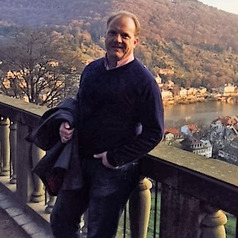
Garritt C. Van Dyk
Lecturer in History, University of Newcastle
Garritt Van Dyk is a Lecturer in History at the University of Newcastle. Current research includes forthcoming publications on sugar boycotts in eighteenth-century France and Britain, and a chapter on Luxury Foods in the Enlightenment. Wider research interests extend to the history of empire, early modern economic history, and European patterns of consumption in the Enlightenment.
His background in international finance and professional experience in commercial cookery, coupled with academic research, offer a unique perspective on both the practices and discourse of cuisine and political economy in the early modern period.
BA (English): Columbia University
PhD (History): University of Sydney
Lecturer in History, School of Creative Industries, Humanities and Social Sciences at University of Newcastle. Have also taught at University of Melbourne (History, Economic History) and Macquarie University (Intellectual Property Law, Business Law, E-Commerce).
Less ![]()
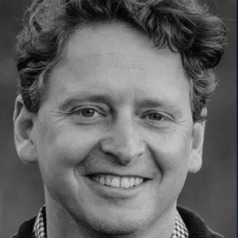
Garriy Shteynberg
Associate Professor of Psychology, University of Tennessee
In my scholarship, I have been captivated by one singular question: What are the psychological foundations of human relationships? That is, what sort of things are indispensable to the formation and function of human sociality?
In the last 15 years of empirical experimentation and theoretical integration, my research program has yielded promising insights. My colleagues and I have found that much of human psychology is devoted to tracking shared awareness—the perception that ‘we are aware’ of something together. Our research focuses on (1) how, (2) why, (3) when, and (4) to what end, shared awareness is tracked by the human mind. To the question of how shared awareness is tracked by the human mind, we find that people imagine what we call a ‘collective mind’ – a singular, unitary, collective agent – or, more simply, a ‘we’. To the question of why shared awareness is tracked by the human mind, we find that when people imagine a ‘collective mind’ they are more confident in their knowledge, enjoy stronger memory recall, as well as experience more extreme emotions and passions. To the question of when shared awareness is tracked by the human mind, we find that situations in which people experience information in synchrony are especially likely to yield the perception of a ‘collective mind’. Finally, to the question of to what end shared awareness is tracked by the human mind, we find that perceptions of ‘collective mind’ underpin social identity formation, affiliative bonding, relational trust, and ultimately, behavioral cooperation, even when it is individually risky.
Less ![]()

Garros Gong
Ph.D. Student in Management Science, University of Waterloo
Garros Gong is an accomplished investment professional and Manager of Investment Strategy and Data Analysis at Scotiabank. He excels in strategic asset allocation for the Global Portfolio Advisory Group, leveraging his expertise in financial analytics, modeling, and critical thinking.
Beyond his corporate role, Garros is a passionate researcher with a focus on the intersection of economics and data science. His work in social media analytics, management sciences, and applied econometrics showcases his deep knowledge and innovative approach to financial research.
In the dynamic world of finance, Garros continues to explore and innovate, driving success with data-driven strategies and solutions.
Less ![]()
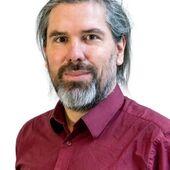
Garry Peterson
Professor in environmental sciences with emphasis on resilience and social-ecological systems, Stockholm University
Less ![]()
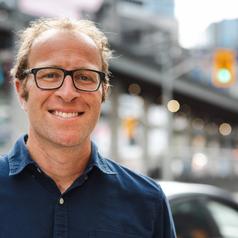
Gary Bloch
Family Physician, Toronto; Associate Professor, University of Toronto, University of Toronto
Gary Bloch is a family physician and Physician Lead, Equity and Social Interventions with St. Michael’s Hospital Academic Family health Team and an Associate Professor at the University of Toronto. His internationally recognized clinical, education, research, advocacy and innovative program development work focuses on the role of health providers in addressing social risks to health. He is a founding member of Inner City Health Associates and the advocacy group Health Providers Against Poverty. He served on an Ontario government panel tasked with developing a ten year road map to end poverty, as a senior fellow with the Wellesley Institute and as an AMS Phoenix Fellow.
Less ![]()
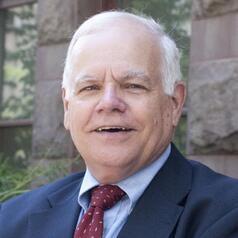
Gary Cross
Distinguished Professor of Modern History, Penn State
Today I would probably be called a 20th century U.S. cultural historian with a focus on consumption, childhood, and leisure issues. But, as a historian trained in modern French and German history and with experience in British and Australian libraries and universities, I have also done comparative history on work, political economy, and time.
I have an ongoing interest in the modern history of western technology and co-authored a text on the subject. My abiding theme is the origins, uses, meanings, and consequences of 20th century affluence with books like "Time and Money: The Making of Consumer Culture," "An All-Consuming Century," and "The Playful Crowd: Pleasure Places in the 20th Century."
Another theme is the modern history of childhood, parenting and generation with "Kids’ Stuff: Toys and the Changing World of American Childhood," "The Cute and the Cool," and "Men to Boys: The Making of Modern Immaturity."
My most recent works explore how sensuality was compressed and made mobile by technology and marketing in the generation around 1900 and how memory has recently been impacted by the rapid turnover of consumer goods. Currently I am completing a book on how cars shaped the coming of age of 20th century Americans. I try to reach audiences beyond the academy and encourage students to ask probing questions about the present that can be explained by the past.
Less ![]()
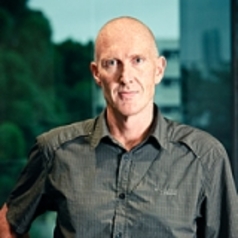
Gary Edmond
Professor of Law, UNSW Sydney
Professor of Law, Faculty of Law and Justice, University of New South Wales, and Chair, Evidence-based Forensics Initiative. Edmond specialises in expert evidence, forensic science and medicine evidence, and the relations between law and science.
Less ![]()
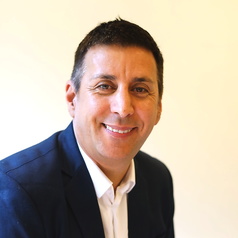
Gary Haq
Senior Research Fellow at the Stockholm Environment Institute, University of York
Gary Haq is a Human Ecologist and Senior Research Fellow at the Stockholm Environment Institute at the University of York (UK). Gary has undertaken research on a wide range of environmental policy issues including air pollution, transport, behavioural change, older people and environment and policy impact assessment. Gary undertook the first assessment of air quality management in 20 Asia cities (Earthscan, 2007) and developed a foundation course on air quality management. He has co-ordinated regional campaigns to engage the public and raise awareness of climate change issues and foster behavioural change. He held the first UK workshop on Older People and Climate Change (2008). He is author of many reports and papers, including Environmentalism Since 1945 (Routledge, 2012) and is co-author of A Short Guide to Environmental Policy (Policy Press, 2014).
Less ![]()

Gary Kinsman
Professor Emeritus, Sociology, Laurentian University
Central areas of research and writing are on the historical sociology of sexual and gender relations in 'Canada.' Books The Regulation of Desire (third edition from Concordia University Press in fall 2023); (co-author) The Canadian War on Queers; (co-editor) We Still Demand!; and a series of book chapters and articles. An activist in the No Pride in Policing Coalition and AIDS Activist History Project.
Less ![]()
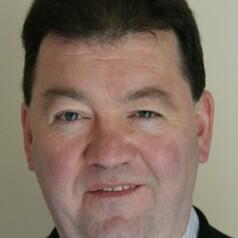
Gary McCulloch
Brian Simon Professor of History of Education, UCL
Gary McCulloch is the inaugural Brian Simon Professor of the History of Education at the founding director of the International Centre for Historical research in Education at UCL Institute of Education. He is currently (2017-2019) the president of the British Educational Research Association and is the Editor of the British Journal of Educational Studies. He is a past president of the UK History of Education Society (2005-2007) and a previous Editor of the international Journal History of Education. He has supervised a wide range of research students in the history of secondary and higher education, both nationally and internationally. He has attracted funding for research projects from the ESRC, Leverhulme Trust and the Society for Educational Studies, among others. Gary’s recent publications include The Struggle for the History of Education (Routledge, 2011), Secondary Education and the Raising of the School Leaving Age (with Woodin and Cowan, Palgrave, 2013), a special issue of Paedagogica Historica on ‘Education, war and peace’ (edited with Georgina Brewis, based on the London conference of the International Standing Conference for the History of Education, July 2014), and A Social History of Educational Studies and Research (with Steven Cowan, Routledge, 2017).
Less ![]()
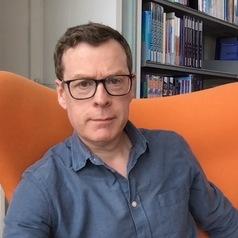
Gary Moran
Associate Professor, Dental Science, Trinity College Dublin
I run the Oral Microbiome research group in the School of Dental Science. My research focuses on the pathogenicity of oral microorganisms, specifically the fungal pathogen Candida albicans and the oral bacterium Fusobacterium nucleatum. Our research involves a combination of molecular genetics, genomics and transcriptomics. We also carry out 16S profiling of the oral microbiome to better understand oral disease. Our research is carried out in the Microbiology laboratory at the Dublin Dental University Hospital, which is on the campus of Trinity College Dublin.
Less ![]()

Gary Mortimer
Professor of Marketing and Consumer Behaviour, Queensland University of Technology
Gary Mortimer is a Professor of Marketing and Consumer Behaviour at the QUT Business School. Prior to joining QUT, Professor Mortimer spent over 25 years working with some of Australia’s largest general merchandise and food retailers.
In 2021, he was appointed as the Chair of the Consumer Research Advisory Committee for the Australian Retailers Association.
He seeks to bridge the gap between industry and academic research by working closely with industry partners to deliver high impact, relevant research that informs the retail and pharmacy sectors. His current research looks at pro-social rule breaking and consumer oriented deviance in retail and service settings.
Less ![]()
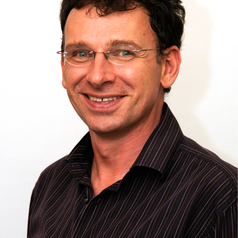
Gary Osmond
Associate Professor of Sport History, The University of Queensland
Gary has a range of research interests in the historical and contemporary dimensions of sport. These include Indigneous sport history in Australia, Australian and Pacific aquatic sport, racial stereotyping, sport myth, social memory and sporting histories beyond the written word.
He is an ARC Future Fellow (2017-21) whose project is titled "Sport, Stories and Survival: Reframing Indigenous Sport History". He is also a Chief Investigator on an ARC Discovery DP190100647 (2020-2023): "Pride, Resilience and Identity: Reimagining Aboriginal Sport History". He was a Chief Investigator on a ARC Linkage-funded digital history project on the Australian Paralympic Movement (2013-17).
Gary gained his PhD in the field of sport history from the University of Queensland, following joint enrolment in the School of Human Movement Studies and the School of History, Philosophy, Religion and Classics.
Less ![]()
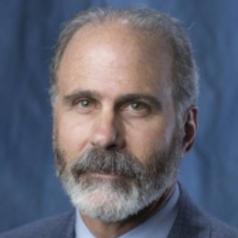
Gary Reisfield
Associate Professor of Psychiatry, University of Florida
After receiving his medical degree from the George Washington University School of Medicine, Dr. Reisfield completed an anesthesiology residency at the University of Florida and a pain medicine fellowship at the Massachusetts General Hospital/Harvard University. Dr. Reisfield subsequently served as a hospice medical director and a pain and palliative medicine division chief at the University of Florida in Jacksonville. As a part of his transition to the University of Florida in Gainesville, Dr. Reisfield completed an addiction medicine fellowship in the department of psychiatry.
Dr. Reisfield is board certified in anesthesiology, addiction medicine, and pain medicine. He is a clinician-researcher and has authored more than 75 articles and book chapters. He currently serves as a forensic expert in the UF Forensic Psychiatry Division. Dr. Reisfield’s forensic expertise includes pain management, substance use disorders, diminished capacity due to intoxication and other impairment issues.
Less ![]()
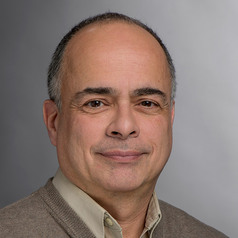
Gary Skuse
Professor of Bioinformatics, Rochester Institute of Technology
Dr. Skuse teaches courses at the undergraduate and graduate level in Bioinformatics and for students in all programs within the Thomas H. Gosnell School of Life Sciences. He is also the founding member and chair of the RIT Institutional Biosafety Committee.
Dr. Skuse spent more than a decade on the faculty of the University of Rochester School of Medicine and Dentistry. While at the University of Rochester Dr. Skuse studied the genetics of a common disease which predisposes affected individuals to tumors of the central and peripheral nervous system. He has co-authored several US and European patents, written and edited professional books, published numerous scientific articles and has served as the Chief Information Officer and founding partner of a scientific information and services provider. He also provides consulting services to a number of local, national and international clients in the areas of human genetics, biotechnology, forensic DNA analysis, information management and communications.
Less ![]()
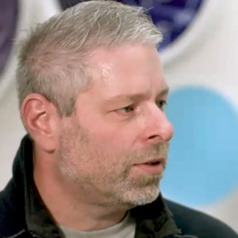
Gary Solar
Professor of Geosciences, Buffalo State, The State University of New York
Dr. Gary Solar is a professor of geosciences whose research focuses on Appalachian tectonic history, with a specialty in Maine, New Hampshire, and Connecticut rocks. He has served Buffalo State University as department chair from 2006-2015, and 2020 to present. He has served the geological community as Chair of the Northeastern Section of the Geological Society of America, and as President of the New York State Geological Association
Less ![]()
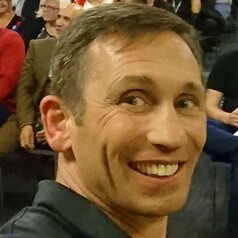
Gary Turner
Doctoral researcher in Policy Analysis of Traumatic Brain Injury in UK Combat Sports, University of Winchester
PhD Student, University of Winchester, Policy Analysis of Traumatic Brain Injury in UK Combat Sports
World, European and British Champion at a variety of combat sports
Less ![]()

Gary Chung Kai Chan
Associate Professor, Faculty of Health and Behavioural Sciences, The University of Queensland
Dr. Gary Chan is a NHMRC Emerging Leadership Fellow at the National Centre for Youth Substance Use Research. His principal research interest lies in the field of substance misuse prevention and the application of cutting-edge statistical method for longitudinal analysis and causal inference. His recent publications have been focused on polysubstance use (including alcohol, tobacco and cannabis) profiles in adolescent populations, examinations of urban-rural differences in substance use, and the epidemiology of alcohol, tobacco and cannabis use.
Less ![]()
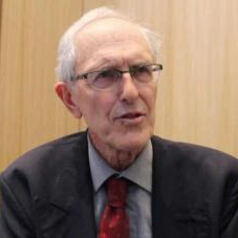
Gary Francis Prevost
Professor Emeritus of Political Science, College of Saint Benedict & Saint John's University
Current Position is Research Associate and Honorary Professor at Nelson Mandela University
and Professor Emeritus of Political Science at the College of St. Benedict and St. St. John's University (USA)
Author or editor of twenty books and more than 100 academic articles focused on Latin America and South Africa.
Research focus is revolutionary parties and social movements. Over 50 years of university teaching with a focus on international relations.
Less ![]()
- Market Data























